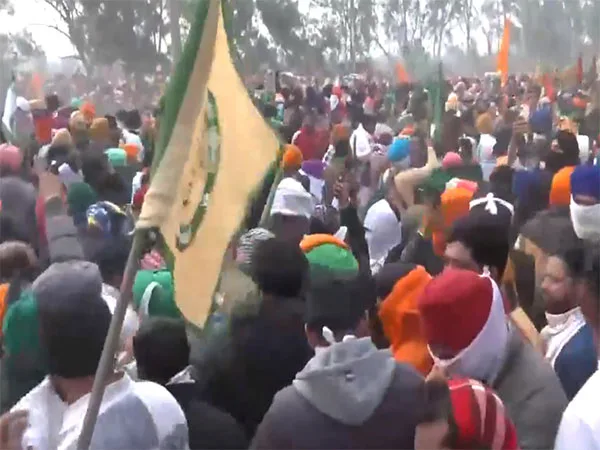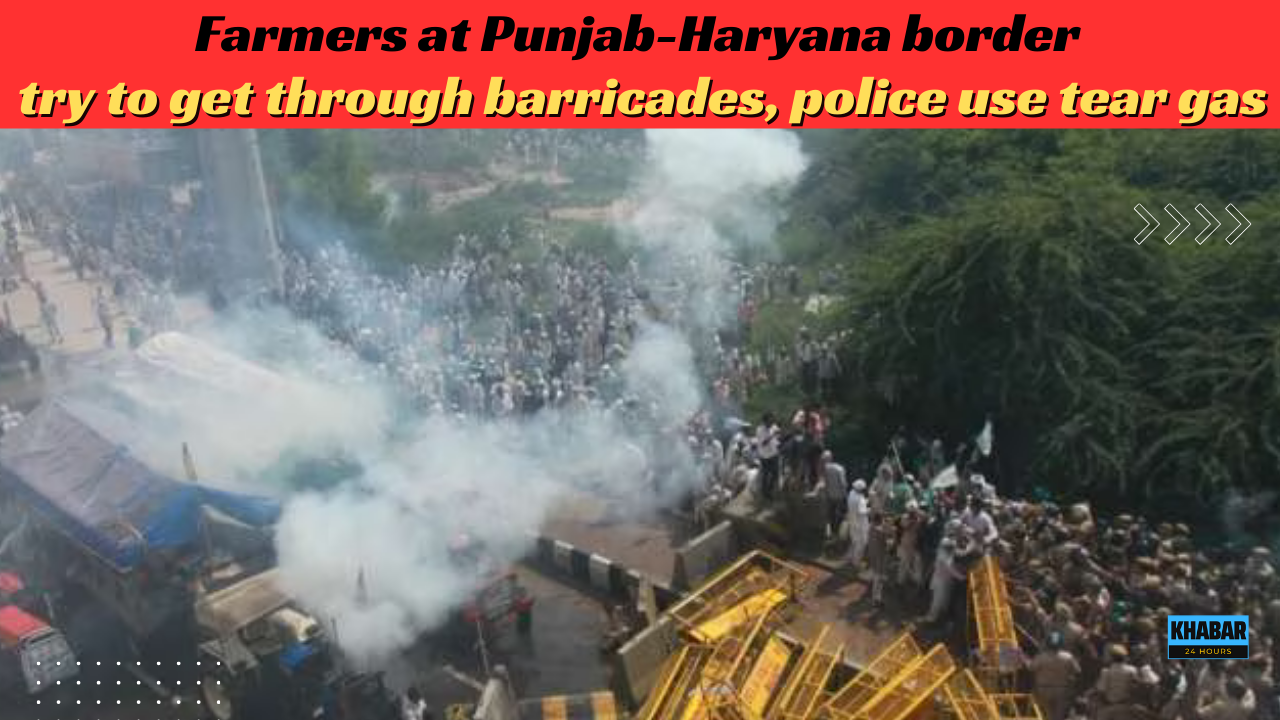During the early protests, police, outnumbered, used drones to drop smoke bombs in a bid to scatter the farmers.
Tear gas was used against a large group of farmers gathering at the Shambhu border between Punjab and Haryana, a crucial point for farmers heading to Delhi for the ‘Delhi Chalo’ protest.
Videos showed thick smoke making it hard to see, with farmers and media scrambling as tear gas shells were fired. The shelling, the first instance of violence, started at noon as farmers started their march towards Delhi. Around two dozen shells were fired, even though there was no clear provocation.
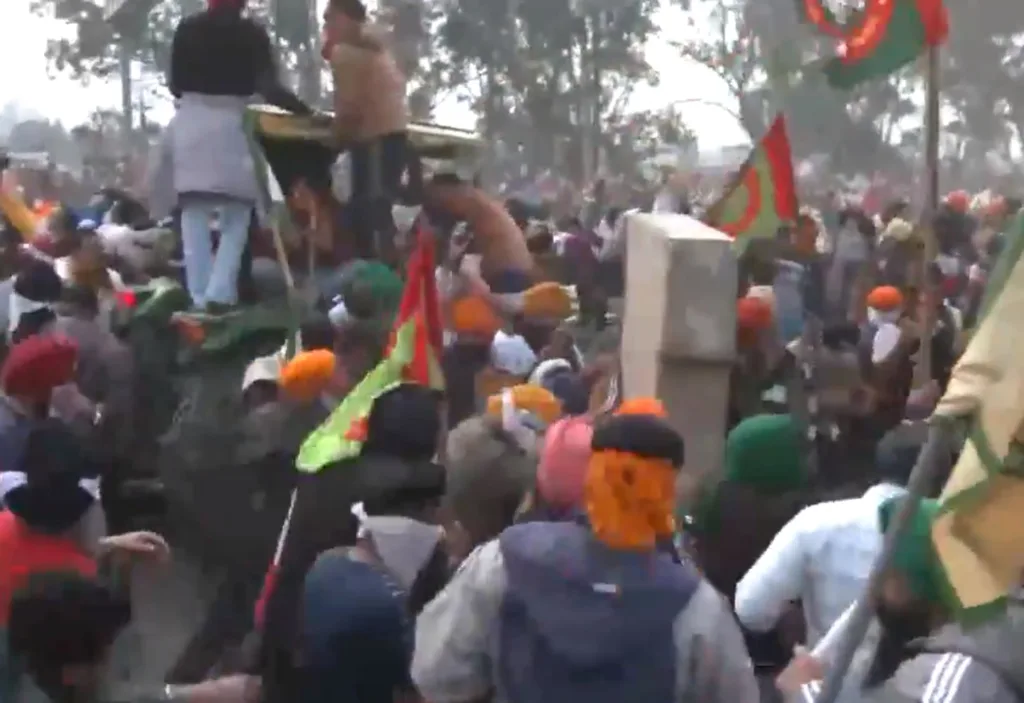
Videos from the Shambhu border, situated over 200 km from Delhi, depicted police and security personnel, already outnumbered, using drones to drop smoke bombs to scatter the farmers.
Other videos showed farmers, with their faces covered, overcoming barriers and barricades, creating chaotic scenes reminiscent of a war zone with smoke and sounds of tear gas guns in the background. Some footage even showed farmers hurling stones at the police.
Around 200 farmer unions, along with an estimated one lakh farmers from nearby Haryana, Punjab, and Uttar Pradesh, started their march towards the national capital on Tuesday morning. This situation echoed the worrying events of the 2020/21 protests, where dozens lost their lives, and the city was blockaded and isolated for months.
In the days leading up to the protest, police in each of these states have been preparing by placing concrete slabs and heavy metal barricades along highways to hinder the movement of farmers and their tractors hauling trolleys filled with food and essential supplies. This indicates their readiness for a potentially prolonged protest.
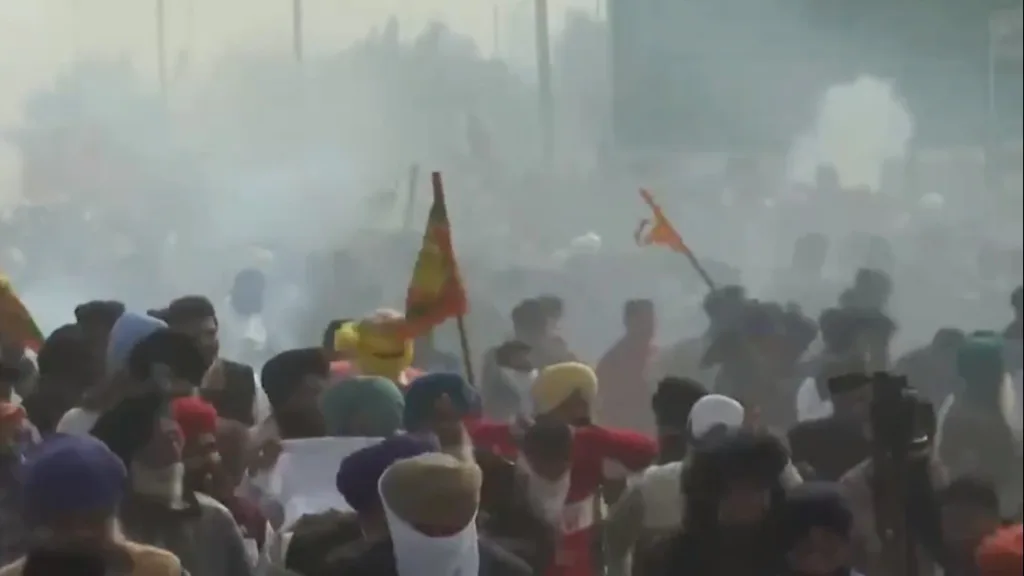
Furthermore, concrete blocks and nails have been strategically positioned on major roads leading into Delhi to prevent tractors and trolleys from entering the city. Large gatherings are banned in Delhi until March 12, adding to the measures aimed at controlling the situation.
Inside Delhi, police have closed off major border crossings into neighboring states, causing traffic congestion at the Ghazipur and Chilla points. These crossings link the city with Ghaziabad and Noida in Uttar Pradesh.
Additional border points like Singhu and Tikri, which were focal points of protests four years ago, have also been reinforced. Measures include laying nail strips across roads to prevent farmers’ vehicles from bypassing checkpoints and installing metal barricades, including barbed wire fences.
In Delhi, police are conducting tear gas shell firing drills. A video obtained by NDTV depicts officers firing tear gas shells in a north Delhi open area, causing discomfort among local residents.
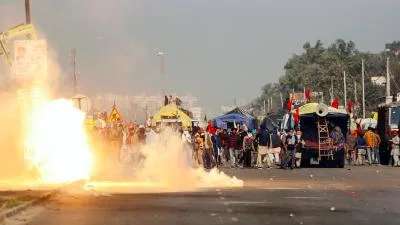
Congress leader Priyanka Gandhi Vadra criticized Prime Minister Narendra Modi’s government for its anti-protest measures. She questioned the act of laying nails in the path of farmers, asking whether it represents a time of prosperity (amritkaal) or injustice (anyaykaal). Ms. Gandhi Vadra attacked the ruling BJP for failing to fulfill its promises to farmers and questioned the Prime Minister’s treatment of the country’s farmers. She urged him to fulfill the promises made to them.
Prepared for Anything
Farmers marching towards Delhi informed NDTV that they are ready for a situation similar to a siege.
“We have everything required, from a needle to a hammer, including tools for breaking stones. We departed from our village with six months’ worth of provisions. We also have sufficient diesel, even for our counterparts from Haryana,” stated Harbhajan Singh, a participant from Gurdaspur, Punjab, who also took part in the 2020 protest.
“We stood firm for 13 months during the previous protest. Despite promises that our demands would be addressed, the government failed to deliver. This time, we won’t relent until all our demands are fulfilled.”
Government Rushes to Manage Protests
In light of the looming general election and the potential negative consequences on its public perception, the ruling Bharatiya Janata Party (BJP) has initiated discussions with representatives of protesting farmer unions.

KNOW MORE ABOUT AGRICULTURE MINISTER ARJUN MUNDA :
Late Monday, two union ministers, including junior Agriculture Minister Arjun Munda, engaged with farmer leaders. Some headway was achieved, resulting in an agreement to repeal the Electricity Act, 2020, and provide compensation to farmers who lost their lives in UP’s Lakhimpur Kheri.
Nonetheless, the farmers’ core demands, including a law ensuring minimum support price (MSP) for all crops, loan waivers, and the implementation of the Swaminathan Commission’s recommendations, remained unresolved. Consequently, the second “Delhi Chalo” protest commenced as planned.
The discussions failed to yield any outcome. We will proceed with our march to Delhi, but we are open to considering the proposals put forth by the government. It’s the government’s responsibility to address this issue,” stated a farmer leader.
